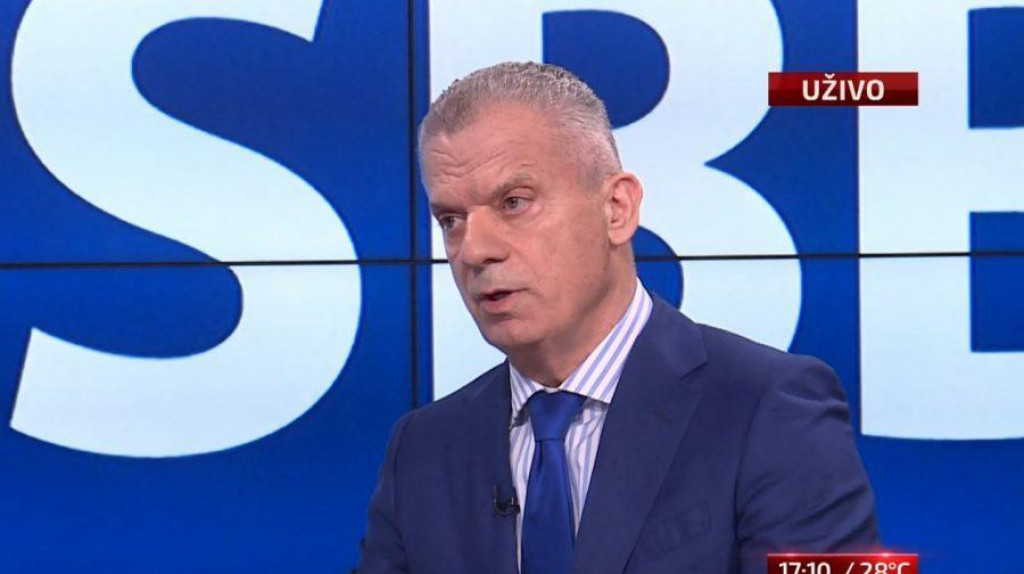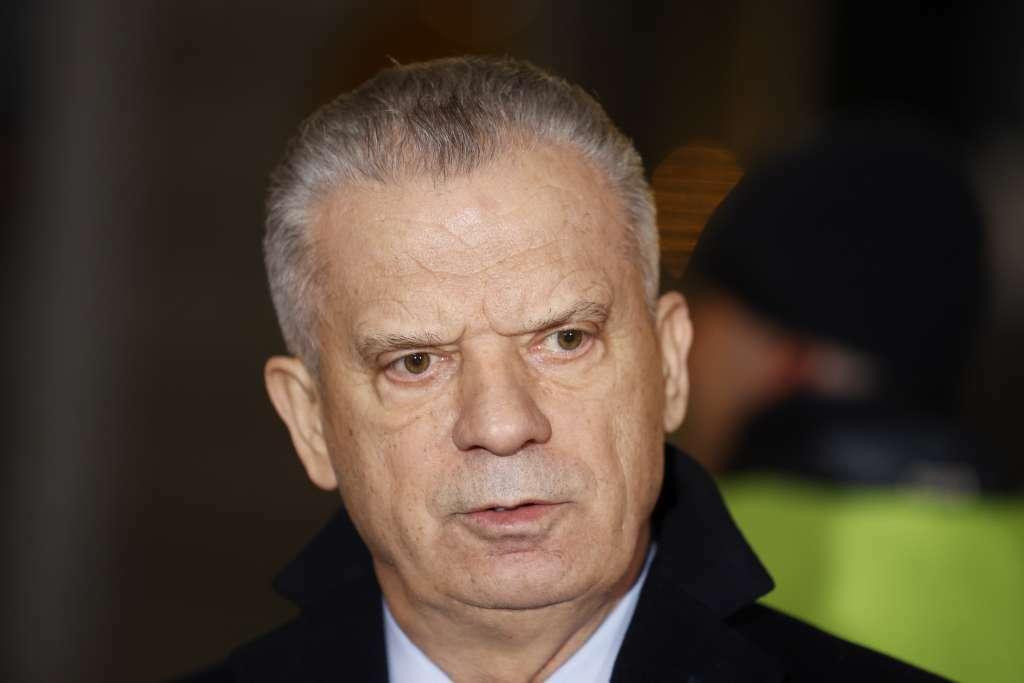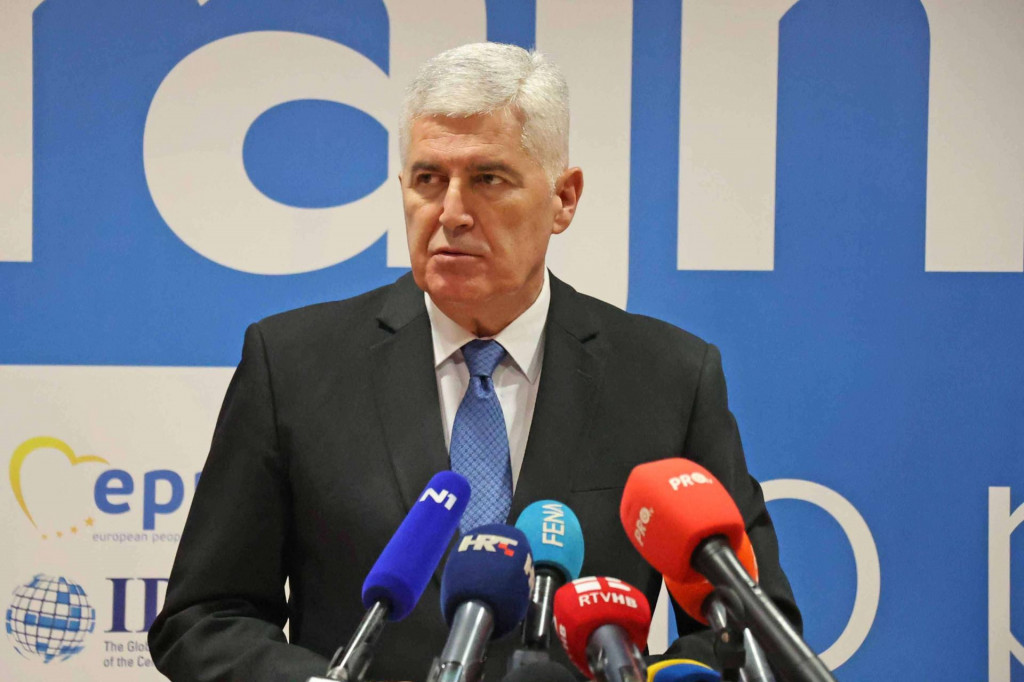
Večernji list: Is there any hope that an agreement on changing the Election Law will be reached in the last minute?
Honestly, that is not a realistic option. In Neum and Sarajevo, we lost a great opportunity to put it as a good basis for public debate, but also in the Parliamentary Assembly of Bosnia and Herzegovina. Now I do not see a way to achieve this without respecting all legal procedures at the same time.
Večernji list: Croatian Prime Minister Andrej Plenković managed to impose at the European Council that, in addition to the constituent peoples, one of the conclusions be a call for another round of talks held in Brussels. Are they realistic and would you respond to it?
I have great respect for Prime Minister Plenković and the lobbying possibilities of the Republic of Croatia. As far as I and SBB, the party I lead, are concerned, I will be happy to travel to Brussels and take part in these talks if they happen.
Večernji list: Who is to blame for the failure of the negotiations on the Election Law, especially in this final round in Sarajevo?
EU Representative Eichhorst and US Ambassador to BiH Michael Murphy, after concluding negotiations in press statements, emphasized that the main culprits were the SDA and HDZ. However, one needs to be realistic. We have been discussing partial changes to the Constitution and reform of the Election Law for ten years. The differences are enormous, we lost precious time because HDZ BiH and SDA talked without other parties. But there is responsibility, I would say, beyond these two parties.
Večernji list: What was agreed in the talks? Izetbegović says that 9 out of 10 steps have been passed, and Čović claims that too.
There is truth in what the two of them are saying. We have made a significant step forward in lifting the blockade in the Federation of BiH Parliament, the election of the president and two vice presidents of the Federation of BiH, the lifting of the blockade in the election of the new FBiH Government and Constitutional Court judges, and a few more points. These are all things we have not agreed on before.
Where our disagreement occurred, between HDZ and SDA, mainly with Izetbegović and Čović, is the reduction of the role of the House of Peoples in FBiH and whether it crosses the line which would result in Croats becoming a national minority. That difference could not be bridged in these negotiations. In my opinion, the epilogue was expected.
Vecernji list: And Members of the Presidency?
As far as the Croat member of the Presidency is concerned, Bosniaks have been electing Croat member of the Presidency three times, ie for 12 years. Although, according to the statements of all relevant Bosniak politicians, we want this practice to stop. But the difference between public statements and what politicians do behind the scene obviously exists. I am afraid that there are still many people in the Bosniak political elite who believe this is a practice that should be continued.
Večernji list: Is it true that the offered proposals and mostly agreed solutions practically implemented all rulings of the European Court of Human Rights from Sejdić-Finci, Zornić, Šlaku, Pilav, Pudarić, but also the BiH Constitutional Court ruling in the Ljubić case?
In my opinion, but also in the opinion of our expert teams, this is indeed the case. The problem for the SDA and not only for this party arose in the so-called electoral voting model. We got the situation that, for example, a vote in Sarajevo is worth 600 to 800 percent less than in Goražde or that a vote in Herzegovina-Neretva County is also worth a few hundred percent more than in Tuzla County. It is difficult to explain to the citizens that there is such a big difference in the vote value.
Not to mention the part of the sensitivity of Bosniak voters that their vote in Sarajevo cannot be eight times less valuable than that of Croats in the HNC. I think that new variations should be made here, new proposals in order to reduce this illogicality. It seems to me that we are on the right track and that is a good concept. But you know in the US the electoral college model can decide the winner within 2 or 3 percent, and here the difference between those percentages is not logical.
Večernji list: Yes, but in the US, 19 percent of the population elects almost 50 percent of the members of the Senate, and for example, in the Federation of BiH, one Croat who is elected to the House of Peoples from Goražde has 1400 times less support than the one from Posavina County?!
The wisdom in negotiations is to listen to those, but also all other arguments in favor of the electoral model. I think there was a lack of patience or even a desire for the negotiations to succeed.
You can read the rest of the interview HERE.
Dnevnik.ba

